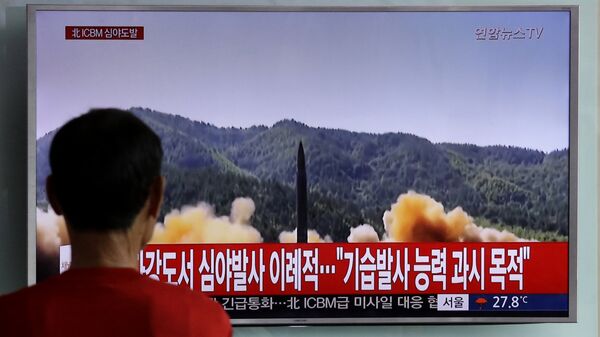"Iran and North Korea also pose a challenge to militaries using space-enabled services, as each has demonstrated jamming capabilities. Iran and North Korea maintain independent space launch capabilities, which can serve as avenues for testing ballistic missile technologies", the report said.
The report also pointed out Moscow and Beijing efforts on countering the US military effectiveness in the space domain.
"Chinese and Russian military doctrines indicate that they view space as important to modern warfare and view counterspace capabilities as a means to reduce US and allied military effectiveness", the report said. "Beijing and Moscow will continue to see space as integral to winning modern wars. They are developing systems that pose a threat to freedom of action in space. Both will continue their efforts to enhance their space and counterspace capabilities, and better integrate them into their respective militaries".
READ MORE: US, North Korea Agree on Hanoi For Second Trump-Kim Summit
Meanwhile, Iran has introduced a new ballistic missile, dubbed Dezful, capable of hitting targets at the range of 1,000 kilometers (about 621 miles). Iranian President Hassan Rouhani said Monday that Iran did not need anybody's permission to continue boosting its military capabilities and developing the missile program.
WATCH: Celebration of 40th Anniversary of Islamic Revolution in Iran
Last year, Washington reintroduced sanctions on Tehran that were waived under a 2015 nuclear deal, co-signed by Russia, China and three EU countries, who vowed to stay in the agreement and continue non-dollar trade with Tehran.



